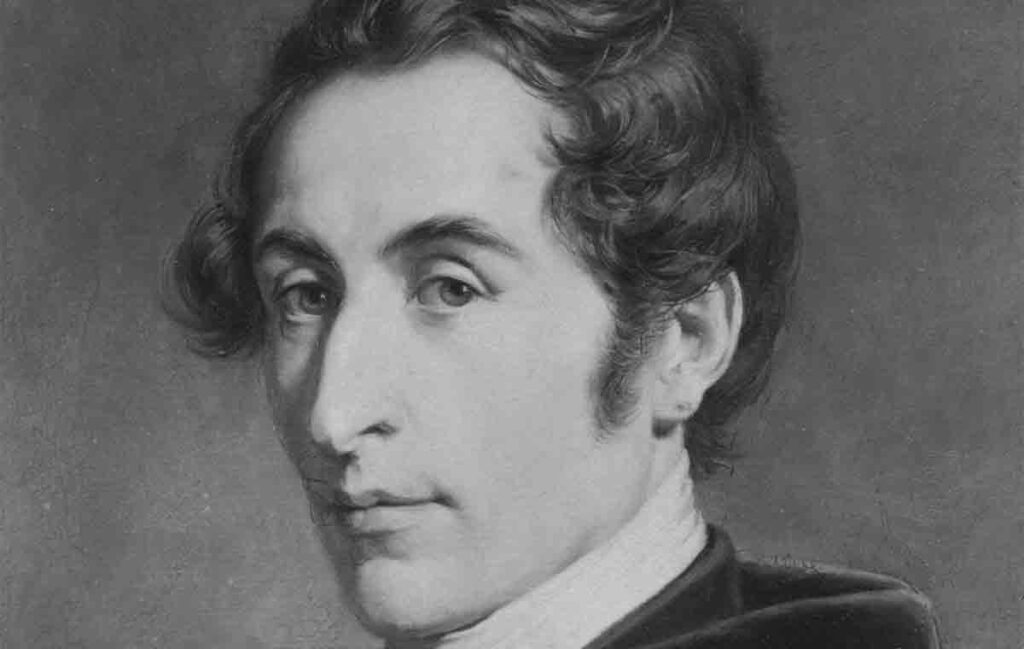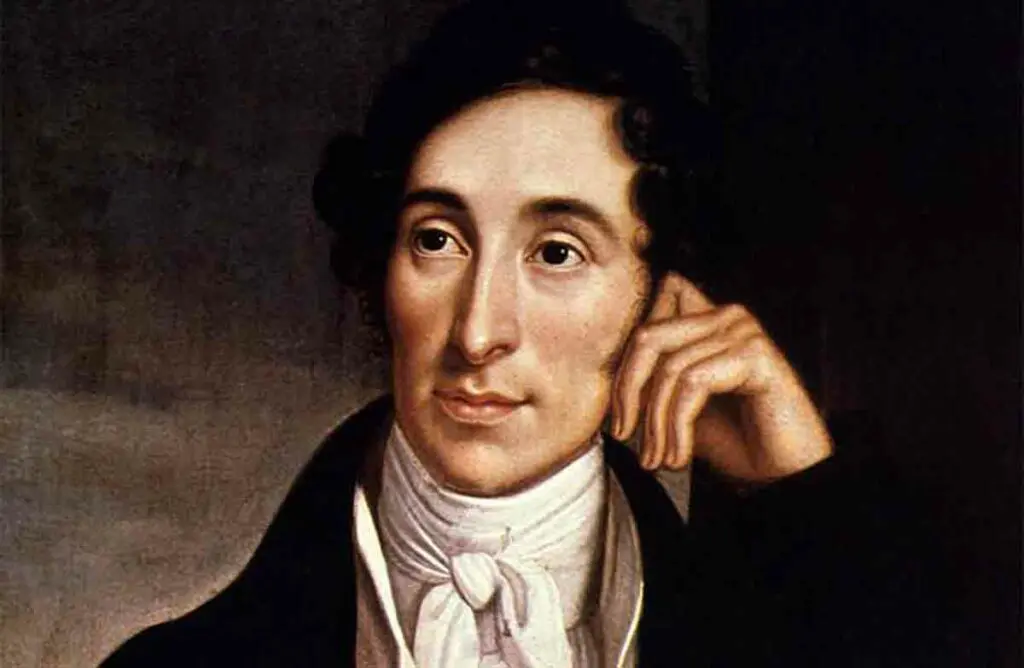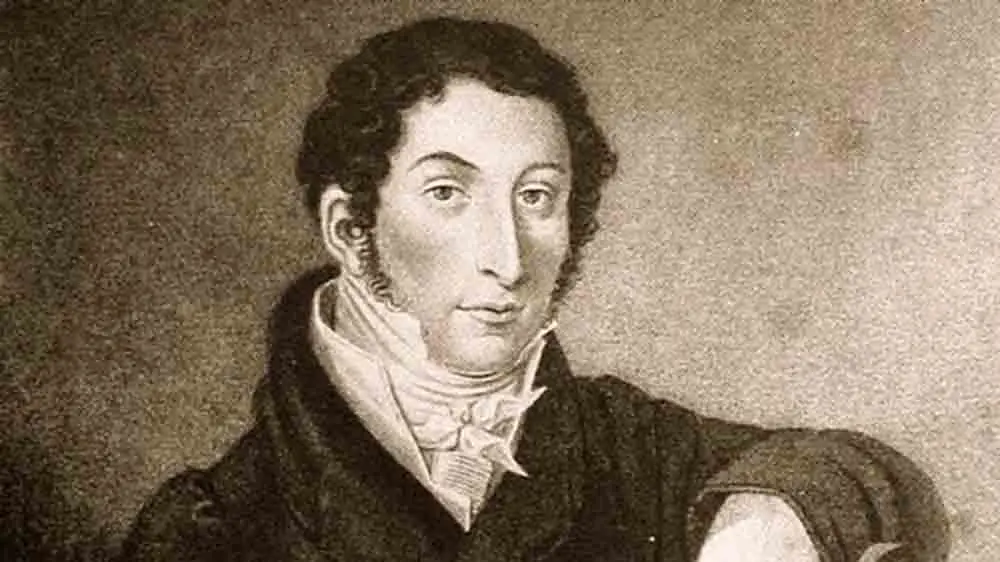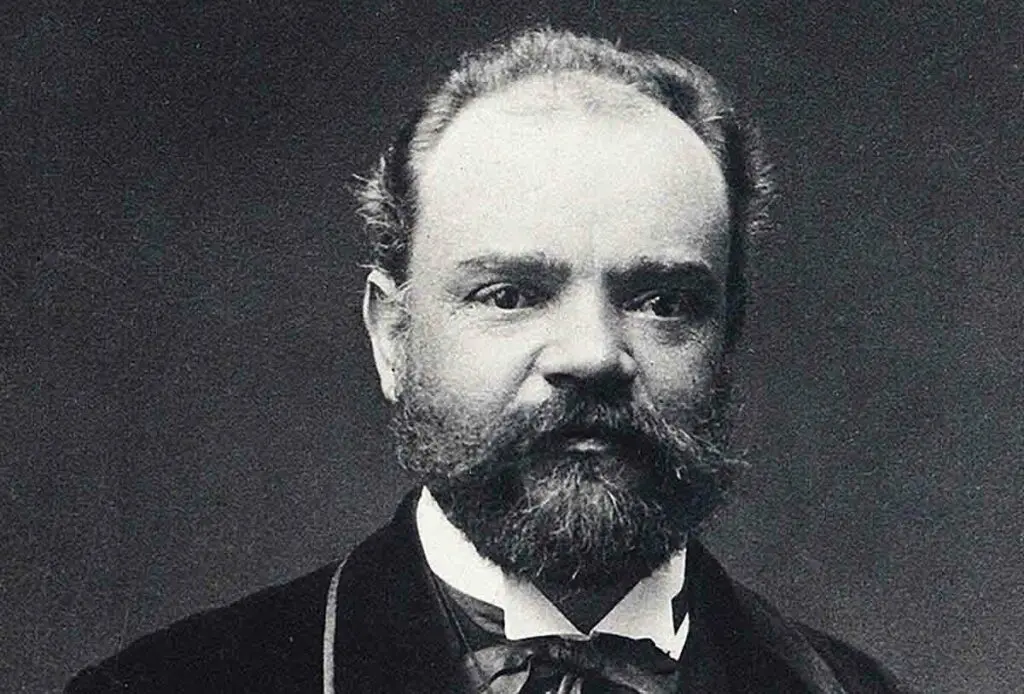The composer Carl Maria von Weber inherited his love for creativity from the head of the family, extending this passion for life. Today they talk about him as the "father" of the German folk-national opera.
He managed to create the foundation for the development of romanticism in music. In addition, he made an undeniable contribution to the development of opera in Germany. He was admired by composers, musicians and admirers of classical music.

Childhood years of the composer
The brilliant composer was born on December 18, 1786. Weber was born from his father's second wife. The large family brought up 10 children. The head of the family served in the infantry, but this did not stop him from opening his heart to music.
Soon, his father even left a highly paid position and went to work as a bandmaster in a local theater troupe. He toured the country a lot, and caught genuine pleasure from what he does. He never regretted that he radically changed his occupation.
Weber's homeland is a small but cozy town of Eitin. The boy's childhood passed on "suitcases". Since his father toured all over Germany, Weber had one amazing opportunity - to travel with his parent.
When the head of the family saw with what greed his son was trying to learn musical instruments, he hired the best teachers in Germany to teach his offspring. From that moment on, the name of Weber is inextricably linked with music.
Trouble knocked on the Webers' house. Mother died. Now all the troubles of raising children fell on the father. The head of the family did not want his son to interrupt his music lessons. After the death of his wife, he, along with his son, moved to his sister in Munich.
Youth years
Karl continued to hone his skills. His work was not in vain, since at the age of ten the boy showed his composing abilities. Soon full-length works of the young maestro were released. The debut work of Carlo was called "The Power of Love and Wine." Alas, the work presented cannot be enjoyed because it has been lost.

At the end of the century, the presentation of the brilliant opera "Forest Glade" took place. At this time he travels a lot. Staying in Salzburg, he takes lessons from Michael Haydn. The teacher had high hopes for his ward. He instilled faith in the young composer so much that he sat down to write another work.
We are talking about the opera "Peter Schmol and his neighbors". Weber hoped that his work would be staged in a local theater. But, not in a month, not in two, the situation was not resolved. Karl did not wait any longer for a miracle. Together with the head of the family, he went on a long tour, in which he delighted the audience with his delightful piano playing.
Soon he moved to the territory of beautiful Vienna. In the new place, Karl was taught by a certain teacher named Vogler. He spent exactly a year on Weber, and then, on his recommendation, the young composer and musician was accepted as the head of the choir chapel at the opera house.
Creative career and music of the composer Carl Maria von Weber
He began his professional career within the walls of the theater in Breslau and then in Prague. It was here that Weber's talent was fully revealed. Despite his age, Carl was a very professional conductor. In addition, he managed to prove himself as a reformer of musical and theatrical traditions.
Musicians perceived Weber as a mentor and leader. His opinion and requests were always listened to. For example, he once expressed the idea of how to correctly place the musicians in the orchestra. The members of the troupe complied with his request. Later they will understand how much the reshuffle has benefited the troupe. After that, the music began to pour into the ears of the public sweeter than honey.
He actively intervened in the process of rehearsals. Experienced musicians were ambivalent about Karl's innovations. However, most of them had no choice but to listen to the maestro. He was rude, so he preferred not to stand on ceremony with his wards.
Life in Breslau ended up being unsweetened. Weber was sorely lacking funds for a normal existence. He got into large debts, and after there was nothing to give back, he simply ran away on a tour.

Soon luck smiled at him. Weber was offered the post of director of the Karlruhe castle in the Duchy of Württemberg. Here he revealed his composing abilities. Carl publishes a number of symphonies and concertinos for trumpet.
Then he received an offer to become the Duke's personal secretary. He counted on a good rate, but in the end, this position drove him into even more debt. Weber was expelled from Württemberg.
He continued to wander the world. In majestic Frankfurt, the staging of his work was just held. We are talking about the opera "Sylvanas". In almost every city that Wagner visited, success and recognition awaited him. Karl, who suddenly found himself at the peak of popularity, did not enjoy this wonderful feeling for long. Soon he suffered from a disease of the upper respiratory tract. Every year the maestro's condition worsened.
Details of the personal life of maestro Carl Maria von Weber
Karl Weber was a real heartthrob. A man easily conquered women's hearts, so the number of his novels cannot be counted on the fingers. But only one woman managed to take a place in his life.
Carolina Brandt (that was the name of Weber's beloved) immediately liked the man. Young people met during the production of the opera Silvana. Beautiful Carolina performed the main part. Thoughts of the chic Brandt filled all of Karl's thoughts. Inspired by new impressions, he took up writing a number of musical works. When Weber went on tour, Carolina was listed as an accompanying person.
The novel was not without drama. Karl Weber was a prominent man, and, of course, he was in demand among the fairer sex. The composer could not resist the temptation to spend the night with beauties. He cheated on Carolina, and she knew about almost all the betrayals of the musician.
They parted, then quarreled. There was a certain connection between the lovers, which helped to pick up the keys to the heart anyway, and go for reconciliation. During the next expense, Weber became very ill. He was sent for treatment to another city. Karolina found out the address of the hospital, and sent a letter to Karl. This was another clue to renew the relationship.
In 1816, Karl decided on a serious act. He offered Carolina a hand and a heart. This event was talked about in high society. Many watched the development of a love story.
This event inspired the maestro to create a number of other brilliant works. His soul was filled with the warmest emotions that motivated the musician to move on.
A year after the engagement, the beautiful Carolina and the talented Weber got married. Then the family settled in Dresden. Later it became known that the wife of the musician is expecting a child. Unfortunately, the newborn girl died in infancy. During this period of time, Weber's health deteriorated greatly.
Carolina managed to give birth to children from the maestro. Weber was overjoyed. He gave the children names consonant with his own and the name of his wife. Eyewitnesses said that Karl was happy in this marriage.
Interesting facts about maestro Carl Maria von Weber
- The piano is the first musical instrument that Weber conquered.
- He was not only famous as a brilliant composer, conductor and musician. He became famous as a talented artist and writer. Rumor has it that Karl did not take on - he did everything in the best possible way.
- When he already had some weight in society, he took the place of a critic. He wrote detailed reviews of the vibrant musical works of the time. He did not skimp on criticism in relation to his competitors. In particular, he hated Rossini, frankly calling him a loser.
- Karl's music influenced the formation of the musical preferences of Liszt and Berlioz.
- His work had a huge impact on the development of both vocal and instrumental music.
- Rumor has it that he was a terrible egoist. Karl said that he was a pure genius.
- Almost all of Karl's creations were imbued with the national traditions of his native country.
Death of Maestro Carl Maria von Weber
In 1817 he took up the post of head of the choir of the opera house in Dresden. His fighting mood somewhat lost ground, because then the Italian mood progressed in the opera. But, Karl was not going to give up. He did everything to introduce national German traditions into the opera. He managed to assemble a new troupe and start life from scratch in the Dresden theater.
This period of time is famous for the high productivity of the maestro. He wrote the most brilliant operas of this time in Dresden. We are talking about the works: "Free shooter", "Three Pintos", "Euryant". Karl was talked about even more with great interest. Suddenly, he was back in the spotlight.
In 1826 he presented the work "Oberon". Later it turns out that he was inspired to write the opera solely by calculation and nothing more. The composer understood that he was living his last months. He wanted to leave his family at least some funds for a normal existence.
On 1 April, Weber's new opera premiered at London's Covent Garden. Karl did not feel well, but despite this, the audience forced him to go on stage to thank him for his worthy work. He died on June 5, 1826. He died in London.



